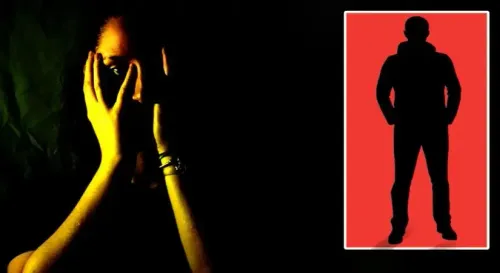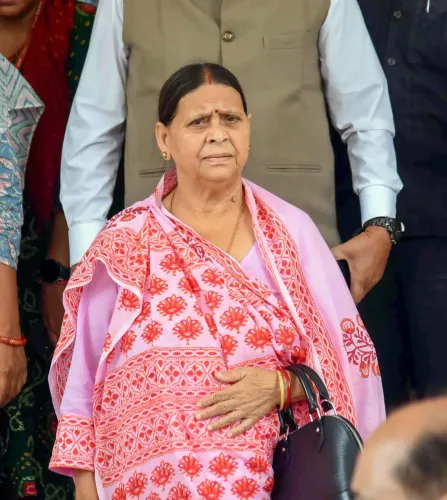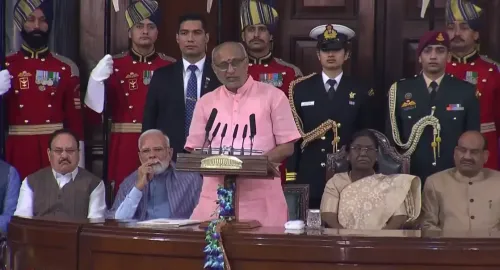What Action Should the Government Take Beyond 'Op Sindoor' to Address Pakistan? A 26/11 Survivor Speaks Out

Synopsis
Key Takeaways
- Devika Rotawan is a survivor of the 26/11 Mumbai attacks.
- The attacks were perpetrated by Lashkar-e-Taiba from Pakistan.
- Over 166 lives were lost during the attacks.
- Devika calls for stronger governmental actions beyond 'Operation Sindoor'.
- The impact of terrorism remains a pressing concern in India.
Mumbai, Nov 26 (NationPress) A survivor of the 26/11 Mumbai terror attacks, Devika Rotawan, expressed her desire for the government to take actions that are even more impactful than 'Operation Sindoor' to deliver a proper response to Pakistan.
In an interview with IANS, Devika Rotawan shared, “Seventeen years have passed since 26/11, yet for me, that night feels as vivid as ever. It doesn’t seem like time has moved on. I can recall every detail as if it happened just moments ago. The sensation of the bullet wound in my leg remains fresh. The terror of that dark night is eternally etched in my memory. While others may see each passing year, for me, it’s about the same day relived.”
Describing her harrowing experience, she continued, “My father, brother, and I were on our way to Pune. We traveled from Bandra to Chhatrapati Shivaji Terminus. While situated between platforms 12 and 13, my brother went to the restroom, and my father indicated that we would purchase tickets once he returned. Suddenly, we were startled by the sounds of explosions. Chaos ensued as people began to flee in every direction. I witnessed blood streaming from individuals’ heads, arms, and legs. I was in shock, unable to comprehend what was happening.”
“Then I spotted a man shooting indiscriminately, appearing to enjoy the chaos. As I attempted to escape, a bullet struck my leg. The police transported me to a hospital, but it was already filled to capacity, so I was moved to another facility. I remained hospitalized for over one and a half months,” she recounted.
Devika expressed a sense of partial closure when Ajmal Kasab, the only captured terrorist, was executed.
“I felt a sense of justice when Kasab was hanged. However, it feels incomplete. True justice will only be achieved when individuals like Kasab, who still live in Pakistan, are dealt with. Terrorism has not ceased. I still feel that no one is genuinely safe. Recent events, such as the Pahalgam attack and the blast in Delhi, remind us that terrorism is still a pressing threat.”
She remarked, “Our nation responded with 'Operation Sindoor', but that was merely a brief preview — the complete response is yet to unfold. I implore the government to undertake actions even greater than 'Operation Sindoor' to convey a strong message to Pakistan and to finally eradicate terrorism.”
Devika also disclosed the challenges she and her family faced post-attack.
“My father was threatened to retract the case, or he would be killed. Yet, he displayed extraordinary bravery, stating, ‘Come and do what you must — we will not yield.’”
The 26/11 Mumbai attacks on November 26, 2008, conducted by the Pakistan-based Lashkar-e-Taiba, struck multiple locations in South Mumbai, including the Taj Mahal Hotel, Oberoi Trident, Nariman House, Colaba Causeway, and Chhatrapati Shivaji Terminus.
Ten terrorists executed a coordinated assault, claiming the lives of over 166 individuals, including senior Mumbai Police officers Hemant Karkare, Vijay Salaskar, Ashok Kamte, and Tukaram Ombale.









